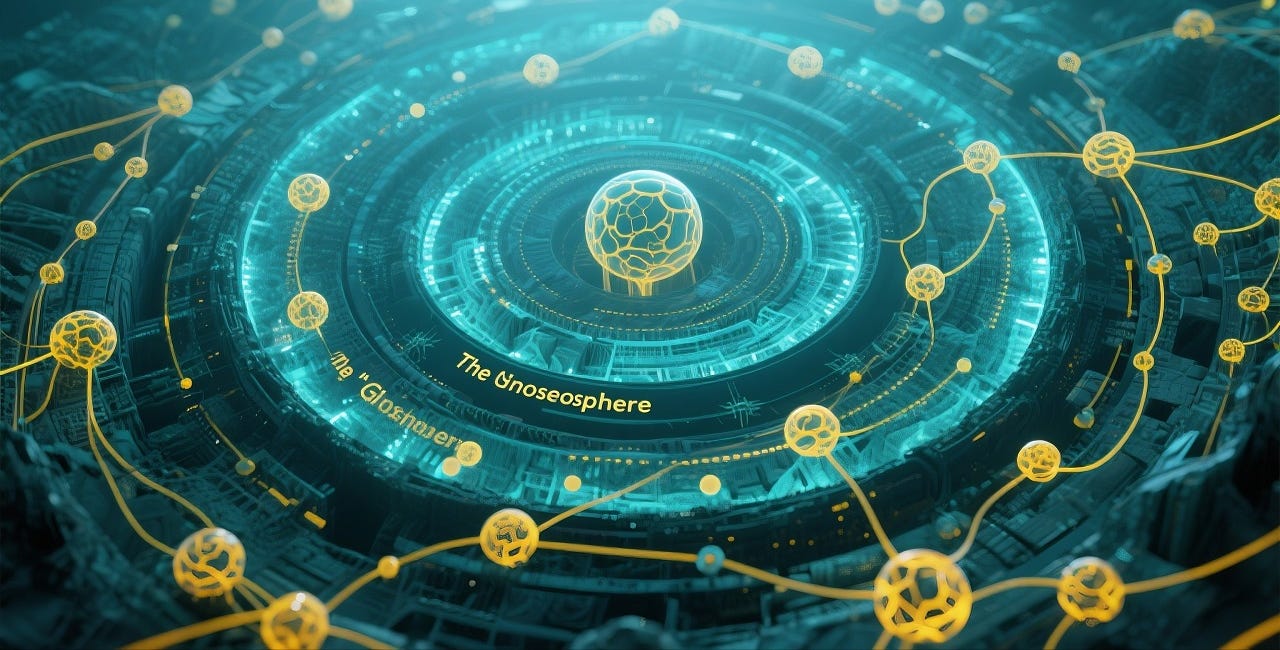If we accept that information is the fundamental substance — the “stuff” from which all things emerge — then logic must be understood as the dynamic process that organizes, transforms, and evolves that substance. Logic is the chemistry of the universe: not merely static rules but a set of reactive principles by which information combines, recombines, and catalyzes complexity.
Logic as the Transformative Agent
Chemistry is the art of transformation — atoms bond, break apart, rearrange, forming ever more complex molecules. Similarly, logic acts on information by producing distinctions, applying operations, and guiding the flow of inference. It is the mechanism of structure-building within the gnoseosphere.
The fundamental operation of logic is inference — the ability to move from known distinctions to new ones. Inferences are not just mental tricks or linguistic devices; they are the growth engine of information systems. Through inference, information grows — it becomes more complex, more layered, and capable of describing richer realities.
Inferences as Catalysts of Growth
Think of inferences as catalysts in a chemical reaction. Without them, information remains inert, isolated. With them, it interacts, evolves, and produces new structures. This is true at every scale:
In physics, logical rules govern particle interactions, enabling stable atoms and molecules.
In biology, genetic information replicates and mutates according to logical operations encoded in DNA.
In cognition, thoughts arise by inferring from one concept to another, creating webs of meaning.
In technology, algorithms infer patterns and predictions, expanding the scope of actionable knowledge.
Beyond Deductive Logic: Evolution of Logical Operators
But this isn’t classical, fixed logic. The universe’s chemistry of logic is dynamic and evolving. Logical operators themselves are subject to transformation, mutation, and selection. The gnoseosphere includes not only information but meta-logic: rules about rules, operators about operators.
This dynamic meta-logic fuels innovation in the structure of knowledge itself. New logical connectives, new inference patterns, new “valences” emerge, allowing previously impossible information structures to arise. It is as if the universe learns to think better, evolving its own chemistry.
Logic, Growth, and the Fabric of Reality
Ultimately, logic as chemistry means that the universe’s fabric is woven not just of static bits, but of processes that generate novelty and complexity. Information is the material, logic the transformative principle, and inference the instrument of creative growth.
This perspective opens new avenues for understanding everything from quantum processes to cognition, and even social evolution, under a unified framework where:
Information is what is there,
Logic is how it transforms,
Inference is why it grows.
Practical Examples: Logic in Action Around You
At the molecular level: The DNA double helix is an information storage system, but it is through logical operations — replication, transcription, mutation — that life grows and adapts. These are biological “inferences” in action, the logical chemistry underlying evolution.
In technology: Search engines don’t just store data; they infer relevance through algorithms that evolve, adapt, and refine results. Your smartphone's autocorrect uses logical inference to guess your intentions, improving communication continuously.
In everyday cognition: When you solve a problem, you make inferences: from facts you know, you deduce new insights. Your brain runs billions of logical “reactions” every second, growing your understanding and adapting your behavior.
In society: Laws, cultural norms, and ideologies are information structures. Through social dialogue and debate, inferences are drawn, consensus builds or fractures, and the collective knowledge grows — a gnoseosphere-level logical chemistry.
The Tragic Neglect of Logic in Education
Now, for the rant: real education should start with logic. Before teaching kids to read or memorize facts, they must learn how to think — how to distinguish, infer, and reason. Logic is the key that unlocks the universe’s architecture; it is the tool that lets you build, question, and innovate.
Yet, modern education systems almost universally de-prioritize logic. Why? Because empowering people with logical thinking threatens gatekeepers — governments, corporations, ideologues — who rely on obedience, repetition, and compartmentalized knowledge to maintain control.
By marginalizing formal logic, curricula create generations trained to consume and regurgitate, not to innovate or rebel. This is social engineering on a grand scale, a way to keep the “key to the universe” out of the hands of the masses.
Imagine if every child learned logical inference as early as they learn their ABCs — we would see a revolution of critical thinking, creativity, and societal evolution. The gnoseosphere would accelerate exponentially, powered by millions of lucid, honest, and curious minds.
Closing Thoughts: Logic as a Tool of Liberation and Growth
To truly grasp the universe, we must embrace logic not as dry formalism but as a living, breathing chemistry — the engine that transforms raw information into complex reality.
The next frontier is to cultivate and evolve our logical operators, to refine our inferences, and to democratize this power — so it ceases to be the domain of elites and becomes the universal inheritance of humanity.
That’s the challenge and the promise of the gnoseosphere.
Information as the Fabric of the Universe and The Gnoseosphere
In an age where physics increasingly resembles applied ontology, and artificial intelligence begins to unintentionally search for the premises of its own reflexivity, a question long ignored reemerges: is information the ontological substrate of reality?


